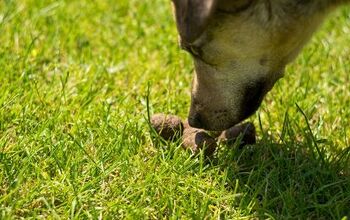5 Ways Probiotics Can Help Your Dog

While we’ve been conditioned to watch for probiotics in our branded yogurt products, do we really understand how this popular ingredient actually delivers on the promised improvement to our gut health? And if it really does help to improve the human digestive process, is there any chance it can also benefit our canine buddies?
Let’s start with the first question. Probiotics are beneficial bacteria and yeasts that aid in the digestion of food. They inhibit the growth of pathogens such as E-coli and salmonella, help in the production of vitamins and nutrients, and generally give our immune system a bit of a boost. Now, when it comes to the second question about whether it can also benefit a dog’s digestive tract, the answer is “yes”. In fact, it’s a highly effective treatment for dogs with chronic or even sporadic digestive issues. Here’s how and when you should use it:
- Pancreatitis prone dogs.
If your pooch reacts with loose bowels when just a hint of fat enters his diet, a probiotic can provide quick, natural relief. For those unfamiliar with the condition, pancreatitis is a painful inflammation of the pancreas and intestinal tract that can be caused by a fatty diet. Probiotics help to rebuild the ratio of good to bad bacteria in his gut that’s needed to help reduce debilitating irritation.
- Older dogs.
As our pets age, their immune systems can become supressed and make them prone to digestive ailments. By including a probiotic in his daily diet, you can anticipate your dog’s need for help in this area. Taking a pro-active approach can prevent him from going through the discomfort of bloating and diarrhea that will happen when his digestive tract is out of balance.
- Easily stressed dogs.
While some breeds are naturally inclined to fret, its not uncommon for individual dogs to have their own set of specific triggers like a change in routine or a visit to the vet. Whether your pet’s stress is chronic or situational, a probiotic taken daily (for dogs that are easily stressed) or as needed (the day before an expected event) can help to settle a nervous stomach.
- Medicated dogs.
At some time in his life, your pet will have to take some form of medication – whether following a surgery, an infection, or for a condition that requires long-term treatment. While most dogs weather it well, for some it can result in a seriously upset digestive system. In these instances, a good probiotic can help calm a sensitive tummy – whether for temporary relief or as a continuing resolution.
- Parasite infected dogs.
Dogs can be prone to hookworms – a parasite that’s found in contaminated soil and can be picked up as easily as your pooch walking across an infected area. It lives in his intestinal tract, feeding on blood and potentially causing anemia. A good probiotic will strengthen your pet’s intestinal wall membrane and research shows it can be highly effective at keeping hookworms at bay.
But while you may be prone to share that bowl of yogurt with your pooch, best to resist. Many yogurts include ingredients (such as artificial sweetener Xylitol) which is extremely toxic for dogs – even in the smallest amounts. Plan to look for a powder, a liquid, chews or capsules that can be given to your pet in quantities recommended by the manufacturer

Sharing space with three seriously judgy Schnoodles and a feline who prefers to be left alone. #LivingMyBestLife
More by Mary Simpson






















